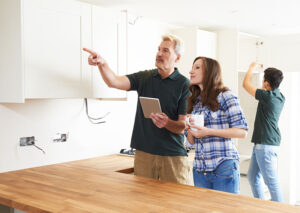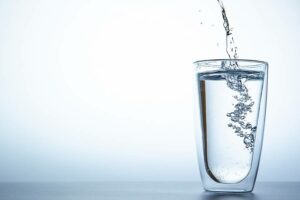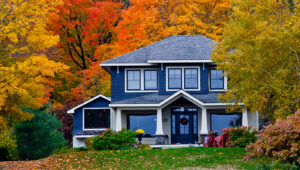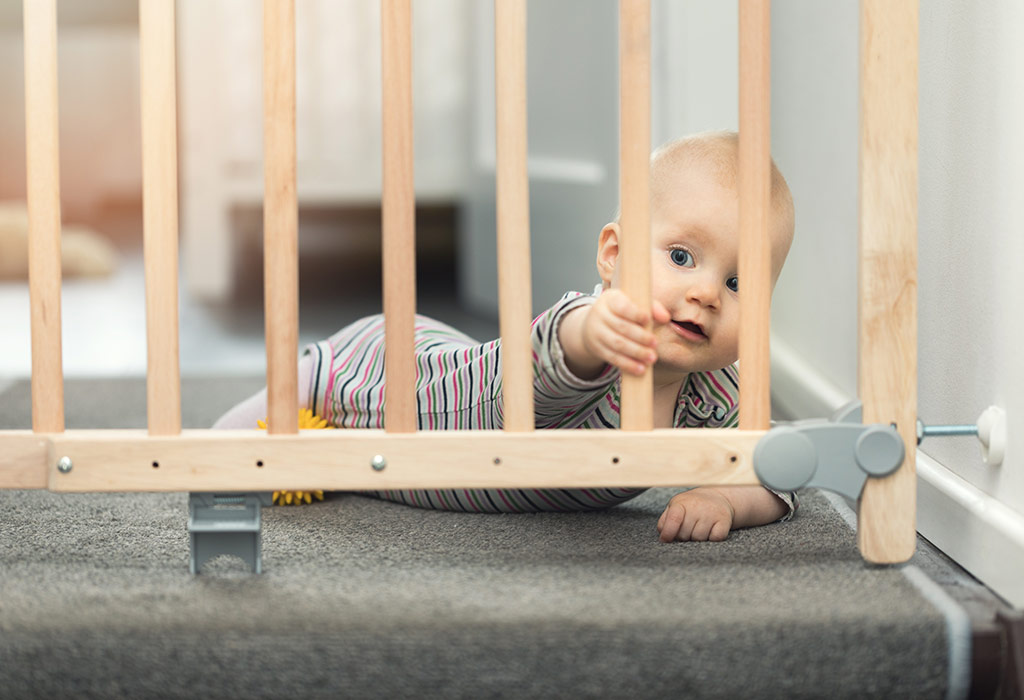
Having a baby is one of the most wonderful experiences in life. At the same time, it’s important to keep your baby safe in the home. We’ve compiled a few checklists to help you prepare your home, so it’s safe for your new baby.
The Kitchen
Between the ages of 12 months and three years old, children want to taste, touch and chew everything. Here are some kitchen-specific tips:
- Place hot food and liquids away from the edges of counters or tables, and beyond your baby’s reach
- Use non-slip placemats and tablecloths on the table
- Lock medications, vitamins, cleaners, detergents and other poisonous products in high cabinets. If you are using these products and you have to answer the phone or door, take the items with you
- Use magnetic cabinet and drawer locks for harmful products
- Put on stove-knob covers to prevent your baby from turning on the burners once she’s standing
- Keep cleaning supplies high-up and out of reach.
- Don’t transfer cleaning products into other containers that aren’t properly labelled,
- Avoid a glass top table since they can be less stable than wood or metal ones
- No rug under the table you most commonly eat at
- If you have rugs, use nonskid pads underneath
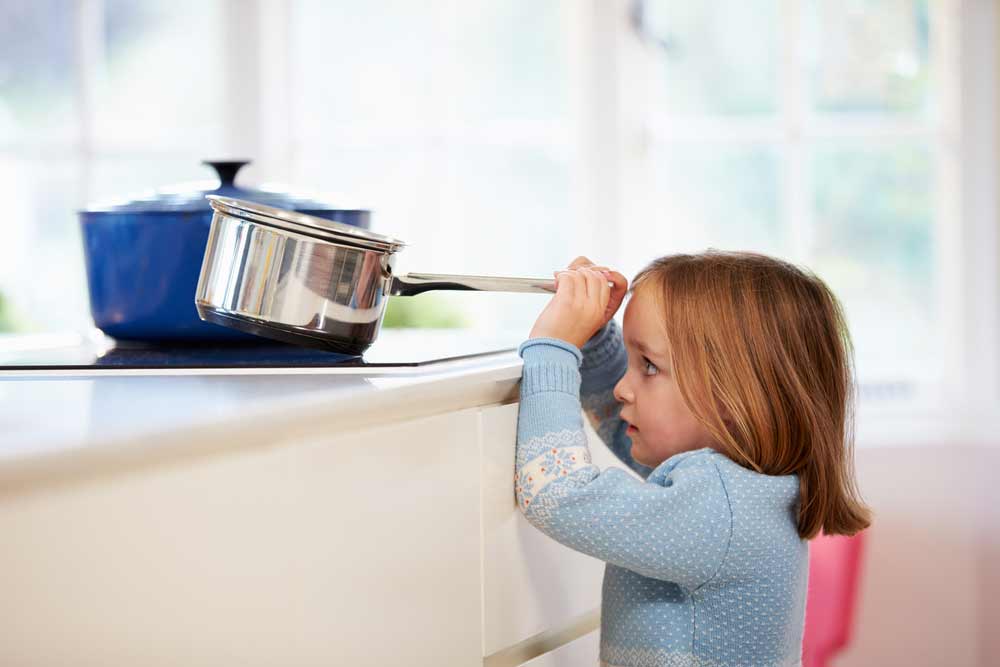
Bathroom and Laundry Rooms
Tap water that is too hot is can easily burn or scald your baby. Here’s what to do in the bathroom and laundry rooms:
- Turn down the temperature of your hot water tank
- If you live in an apartment or condominium and share hot water, attach an anti-scald valve to your tap. This valve shuts off the water flow if it reaches 49˚Celsius, which is the safest maximum temperature
- Keep medications and cleaning supplies out of reach in high cabinets
- Install latches for the medicine cabinet
- Use a toilet lock
- Use a thermometer to ensure bathwater is a safe temperature
Living Room
Falls are the biggest reason children need to visit the hospital. Babies and toddlers can fall and bump their heads on sharp corners, knock over furniture, or fall on the floor. Here are some tips to prevent injury in the living room:
- Secure heavy or unstable pieces of furniture to the wall
- Pad the edges and corners of coffee tables, fireplace hearths and other sharp surfaces, or remove your coffee table until your toddler can walk.
- Buy your child a good pair of rubber-soled slippers
- If your house was built before 1978, check if you have lead paint on the interior windowsills, door frames, and other areas. If so, hire a lead-safe contractor to renovate or repair lead-based surfaces
- Choose furniture that comes with anti-tip kits, higher safety standards, and use fewer chemicals in production. Rounded coffee tables or soft ottomans that can be used as a table are good options
- Check the cleaning codes for couch and chair fabrics, and look for upholstery that is high performance or use slipcovers that can be washed and dried in your own machine
- Install childproof covers for electrical outlets or GFIs near the ground
- Use cordless blinds or shades on windows
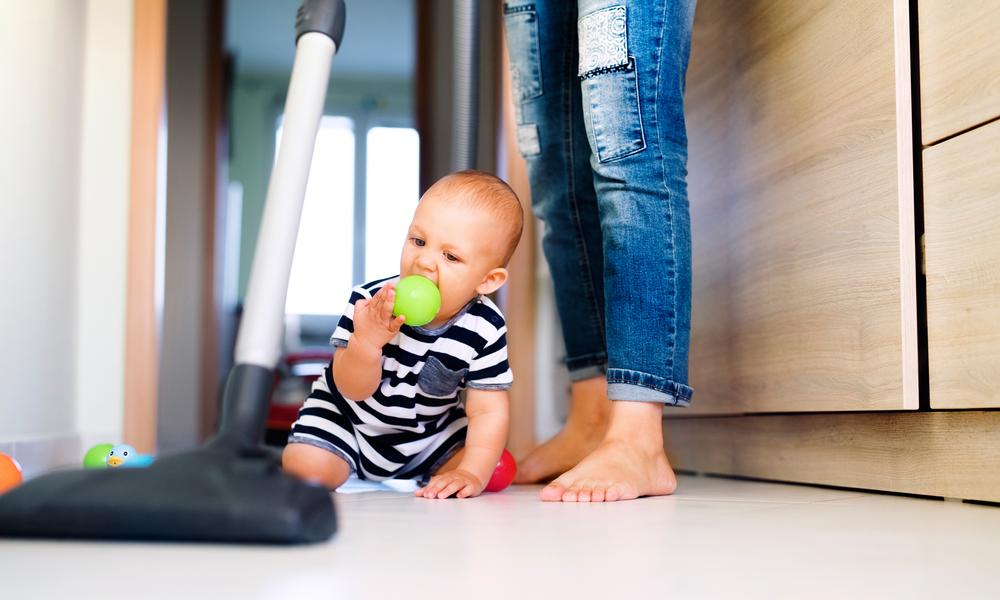
The Nursery or Your Child’s Bedroom
There are a number of safety considerations for the nursery:
- Always lock windows so that they can’t open more than 10 cm (four inches) wide
- Keep dangling items, like window blind cords, out of reach. Cut or untie loops in the cords
- Place your baby’s crib, toddler bed and other furniture away from the window to prevent climbing
- Avoid hanging anything directly over the crib and change table
- Place a thick piece of carpet or a rug to cushion falls
- Use an open bin as a toy box
- Install UL-listed night-lights and replacement bulbs
- Use finger-pinch guards for hinges on doors
Plants and Other Poison Dangers
Plants are a common cause of poisoning in young children. Certain plants (such as English Ivy or Philodendron) are very poisonous. Contact the Ontario Poison Centre by calling 1-800-268-9017 (toll-free) or visiting ontariopoisoncentre.ca to find out whether any of your house plants are poisonous, then remove them from your home.
Stairs
Young children can easily fall down the stairs in your home. Here are some tips to prevent this from happening:
- Install a stairway gate, anchored to studs in the wall. Screws on both sides prevent your child from pushing it loose.
- Only use pressure gates (installed without screws) for rooms on one level
- Don’t use accordion-style or plastic mesh safety gates with large holes, which children can easily climb
- Choose a gate at least 71 cm (28 inches) high, but don’t use it after your child is two years of age or if her chin reaches the top of the gate
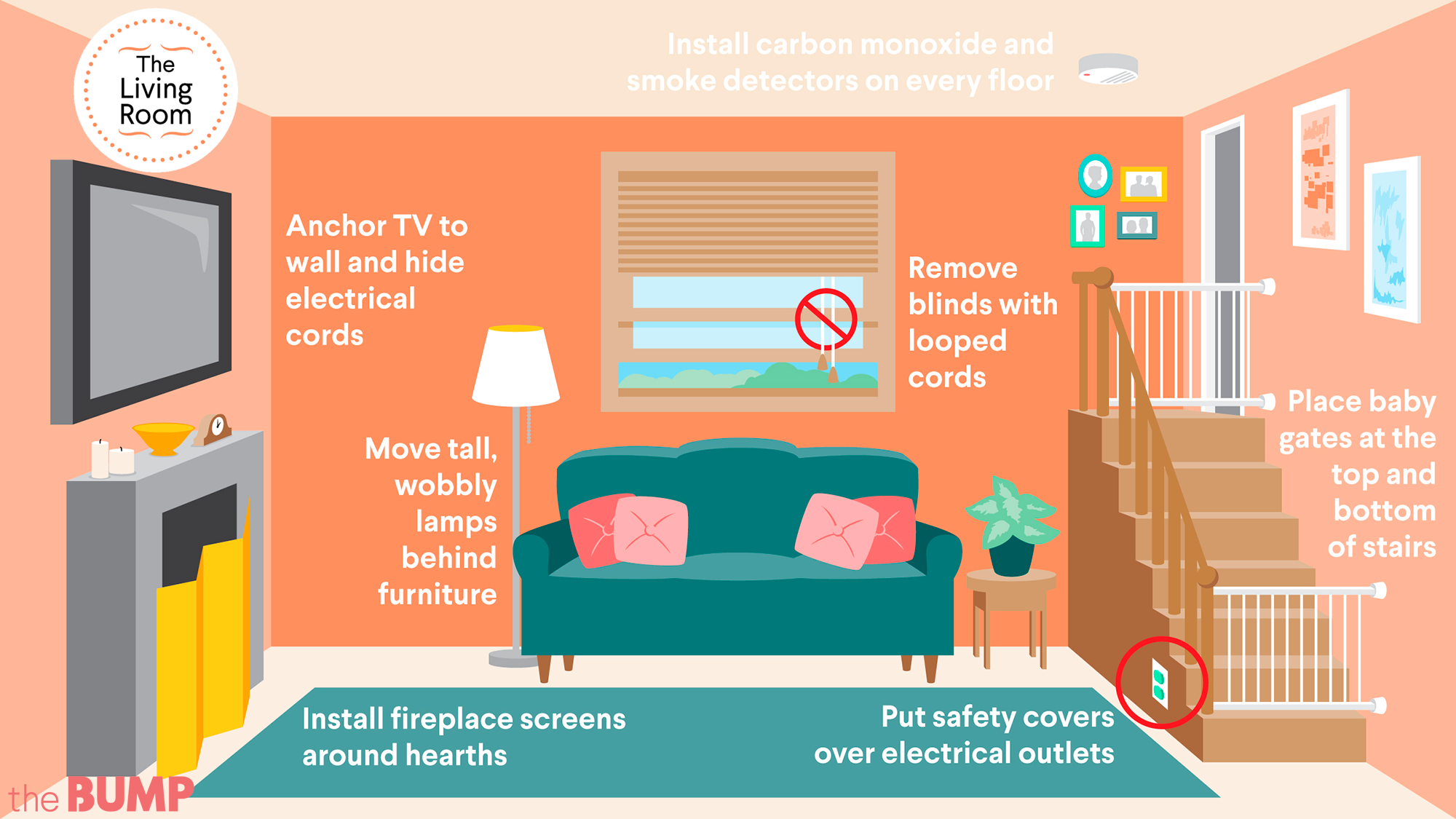
Other Considerations
Here are a few last tips to make your house babyproof:
- Check your smoke and carbon monoxide detectors
- Place safety gates at the entrance or exit to any room that’s off-limits to baby
- Clean and vacuum regularly to remove loose change, paper clips, and other small choking hazards
- Place locks on liquor cabinets (alcohol can be poisonous to young children)
- Cover radiators and heating vents to prevent burns
- Check your doorstops for removable caps that pose a choking hazard
- Keep batteries stored in a safe place (they can leak acid, causing serious burns)
- Clear cosmetics and shampoos off the sink and tub ledges (poison risk)

